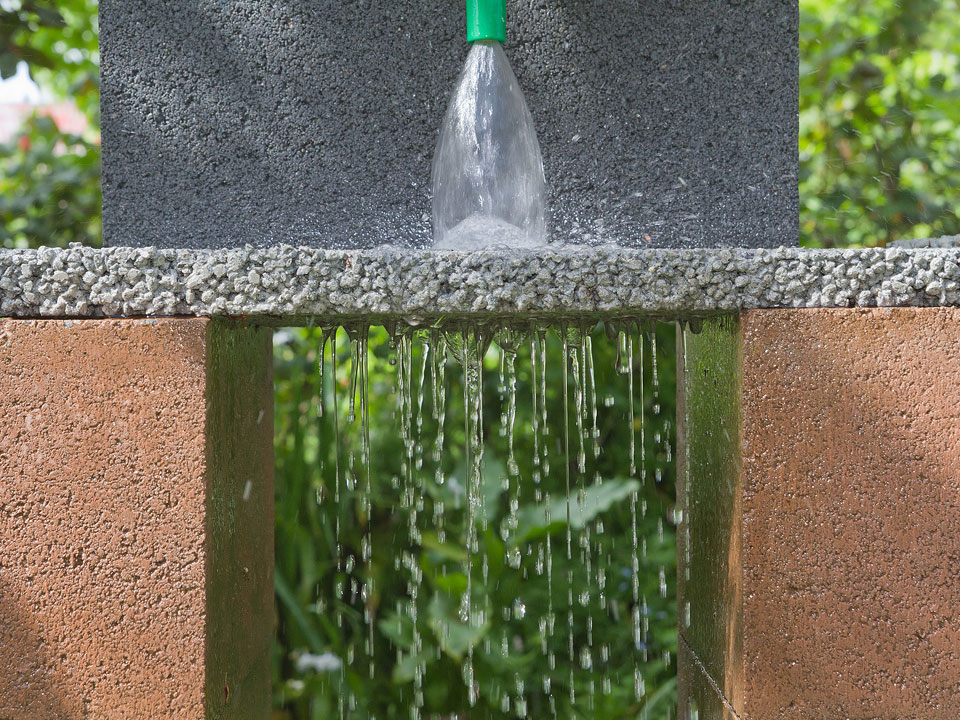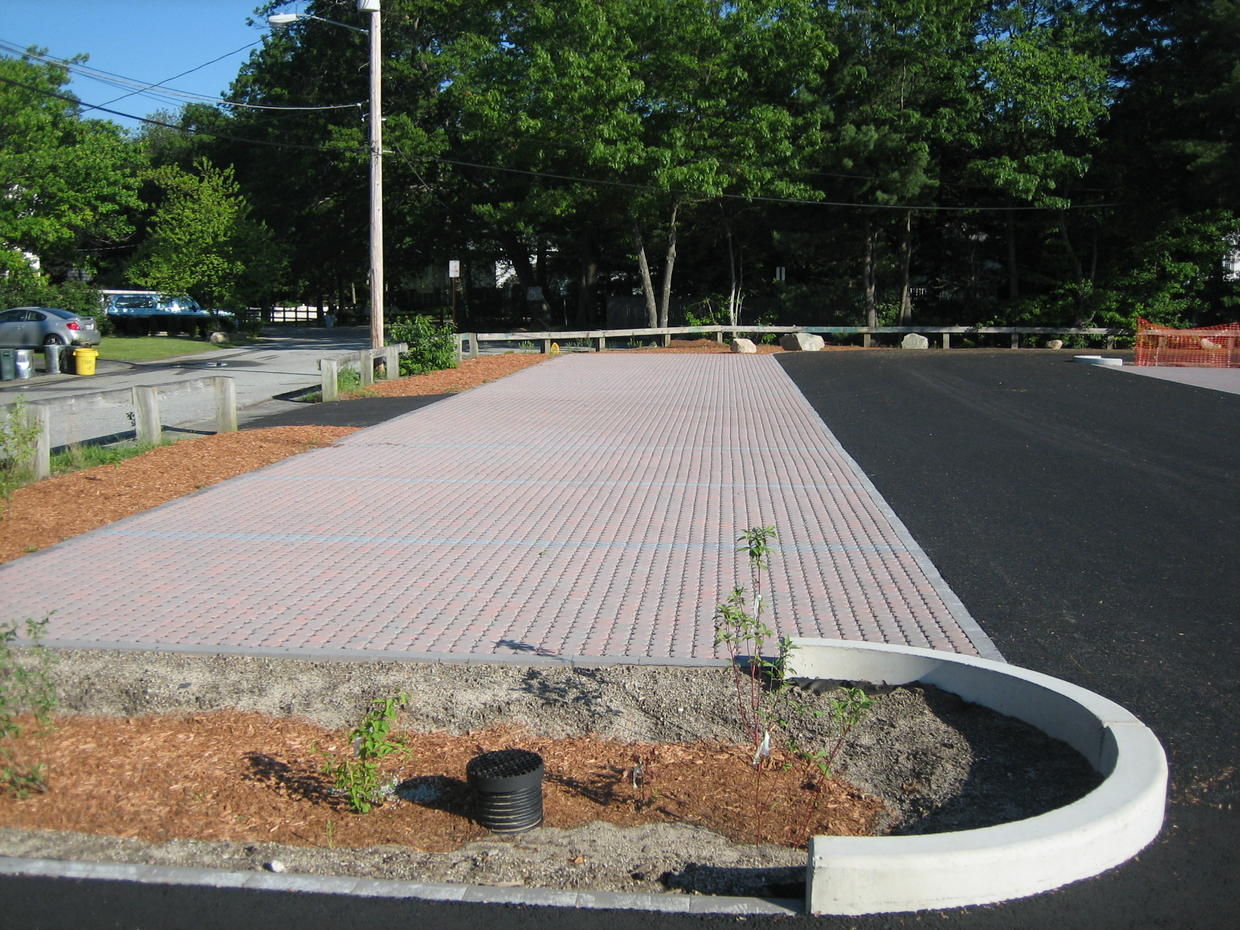What is Permeable Paving?

Permeable paving is an alternative for paved surfaces that can help reduce runoff by infiltrating rain water. As part of a stormwater drainage strategy, the goal is to control stormwater at the source, reduce runoff and improve water quality by filtering pollutants in the substrata layers. Good uses for permeable pavement includes roads, paths, and parking lots that are subject to light vehicular traffic, such as cycle-paths, service or emergency access lanes, road and airport shoulders, and residential sidewalks and driveways.
What is Permeable Paving?
Permeable pavers are made from alternative materials which may include pervious asphalt, pervious concrete, interlocking pavers, and plastic grid pavers. These materials allow rain and snowmelt to seep through the surface down to underlying layers of soil and gravel.
The media used for the base of permeable paving may be porous, allowing fluids to flow through it, or nonporous media that are spaced to allow fluid to flow in between the gaps.
Although some porous paving materials are nearly indistinguishable from nonporous materials, their environmental impact is significantly different. Whether it is pervious concrete, porous asphalt, paving stones or concrete or plastic-based pavers, all these permeable paving systems allow stormwater to percolate and infiltrate the surface areas, bypassing the traditionally impervious materials to the soil below.
What are its benefits?
One of the many benefits permeable pavers offer is helping filter out pollutants that contribute to water pollution. Permeable paving can trap suspended solids, filtering pollutants before they contaminate stormwater. Permeable pavements can reduce the need for road salt and reduce construction costs for residential and commercial development by reducing the need for certain types of conventional drainage features.

Example of Permeable Paving
Silver Lake Beach Parking Lot, Wilmington MA – This demonstration project from Massachusetts shows the use of Permeable pavers, porous asphalt, and bioretention cells at the Silver Lake beach parking lot, Wilmington MA (photo: GeoSyntec)
